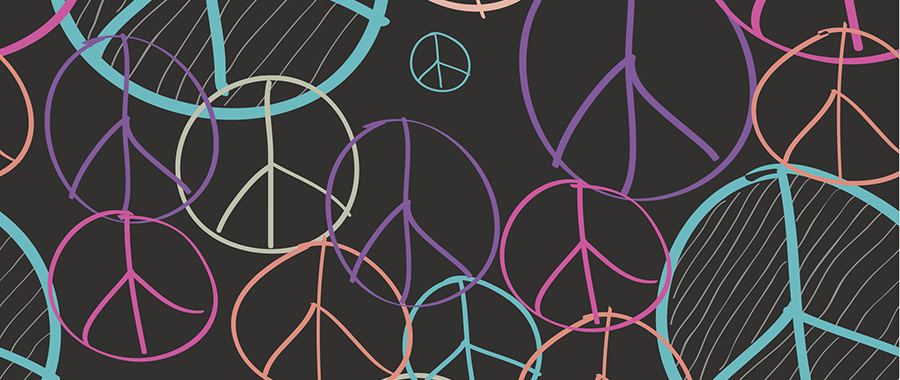In the grand tapestry of human aspiration, the quest for international peace often emerges as one of the most noble motifs. Yet, amid escalating geopolitical tensions and endemic conflicts, one must ponder: Is international peace merely a pipe dream? The Bahá’í teachings offer profound insights into this dilemma, framing peace not merely as a possibility but as an essential reality awaiting manifestation through collective human endeavor.
The metaphor of a pipe dream typically underscores the inherent futility of unattainable desires. In contrast, the Bahá’í perspective contends that the potential for global harmony resides within the interwoven fabric of humanity. Just as a skilled weaver deftly intertwines diverse threads to create a vibrant tapestry, so too can humanity harmonize its diverse cultures and ideologies into a cohesive whole. This vision is not one of naive idealism; it is a clarion call for unity based on a foundational recognition of shared humanity.
At the core of Bahá’í teachings is the principle of unity in diversity. This concept is indispensable in debunking the notion that international peace is unattainable. The Bahá’í Faith posits that diversity is not an impediment but rather a catalyst for the advancement of civilization. Rather than viewing differences as obstacles to be overcome, Bahá’í teachings encourage individuals to celebrate them as opportunities for collaboration and enrichment.
Consider the analogy of an orchestra. Each instrument possesses a unique timbre and voice; the conductor’s role is to blend these distinctive sounds into a harmonious symphony. In our global society, the myriad cultures, beliefs, and perspectives represent these instruments. For world peace to flourish, humanity must engage in a conscientious effort akin to the conductor’s task, drawing forth the beauty from each culture while ensuring that no voice overwhelms another. Thus, the emergence of a harmonious global society requires active participation and a commitment to fostering cooperative relationships.
The Bahá’í teachings elucidate that the pursuit of peace must be anchored in principles of justice, equity, and ethical governance. Peace is not simply the absence of conflict; it necessitates the presence of justice. Systems that perpetuate inequality and oppression sow seeds of discontent, ultimately thwarting the realization of peace. In contrast, the establishment of just societies lays the groundwork for lasting tranquility. This imperative calls upon individuals and nations alike to strive for moral rectitude and engage in dialogue that prioritizes justice and understanding over discord and division.
Moreover, the Bahá’í Faith emphasizes the significance of education as a catalyst for transformative change. Knowledge is a powerful tool in the realm of peace-making, as it fosters understanding and empathy among diverse groups. The cultivation of global citizens who are knowledgeable, compassionate, and empowered to confront injustices is paramount. This educative endeavor must transcend formal education systems to encompass moral and spiritual development—qualities essential for nurturing harmonious relationships and fostering a culture of peace.
In the Bahá’í understanding, peace must also harness the power of collective action. While individual efforts are laudable, the magnitude of global challenges necessitates collaboration across borders. The formation of international coalitions and movements based on shared human values can galvanize collective energy toward peace. The synergy of diverse perspectives contributes to innovative solutions capable of addressing complex issues such as poverty, climate change, and conflict resolution. Thus, the call to action is clear: individual contributions merge into a more substantial force when guided by an ethos of unity.
Additionally, the Bahá’í teachings present the concept of spiritual solutions to material challenges. Deep-seated issues like war and violence often stem from humanity’s disconnect from its spiritual core. By fostering spiritual development and a deeper appreciation for the inherent dignity of all people, individuals can transcend the baser instincts that give rise to conflict. The institution of prayers and meditative practices within the Bahá’í community further nurtures this connection, reminding believers of their responsibility towards a peaceful world.
With the rise of globalization comes both opportunities for unity and challenges of division. Technological advancements enable instantaneous communication and connectivity, yet they can also amplify discord. The Bahá’í teachings encourage individuals to wield technology as a tool for social advancement and understanding. By fostering digital platforms that promote respectful discourse and cross-cultural exchange, societies can reaffirm their commitment to collective well-being, showcasing the intrinsic value of divergent perspectives in the pursuit of tranquility.
In conclusion, while the phrase “pipe dream” often connotes something unattainable or fanciful, the Bahá’í teachings reframe the narrative. International peace, rather than being a distant fantasy, becomes a palpable objective made possible through the concerted efforts of individuals united in purpose. By embracing unity in diversity, prioritizing justice, committing to education, and engaging in collective action infused with spiritual awareness, humanity can transform the aspiration for peace into a lived reality. The path may be fraught with challenges, yet the rewards of a peaceful world serve as a beacon, guiding the journey toward that which is not merely a dream, but a shared destiny awaiting realization.
